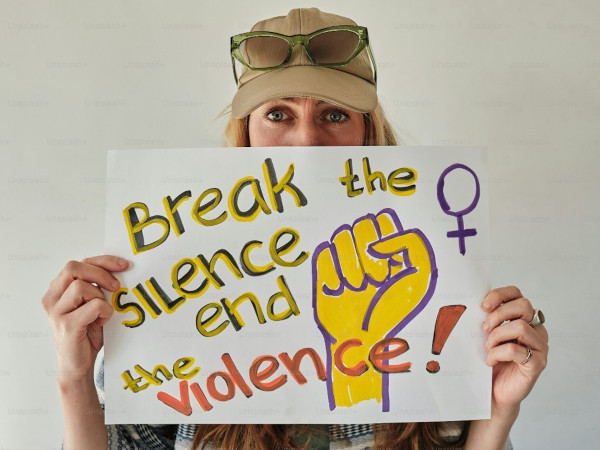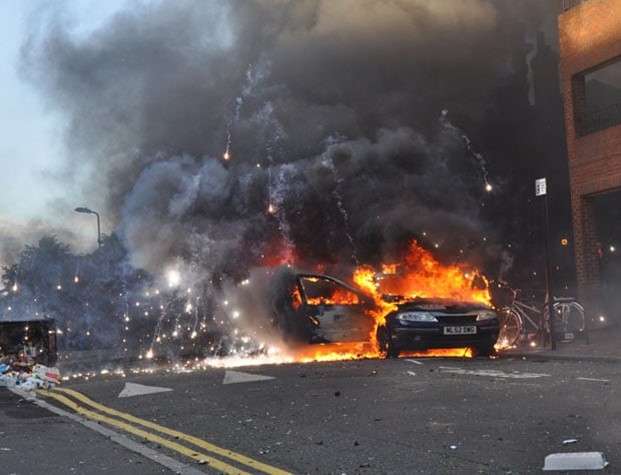Sexes and Society: Misogyny and Hate on the web
Sociologist Michael Flood at the University of Wollongong defines misogyny as the hatred of women.
The position of women in Society has become a major issue in many countries:
- Violence against women – particularly intimate partner violence and sexual violence – is a major public health problem and a violation of women's human rights.
- Estimates published by WHO indicate that globally about 1 in 3 (30%) of women worldwide have been subjected to either physical and/or sexual intimate partner violence or non-partner sexual violence in their lifetime.
Example of Misogny…
- JD Vance a candidate for US vice president has attacked Kamala Harris the woman candidate to become president of the United States for being “a childless cat woman” and has declared that working women are “on a path to misery”


Kamala Harris US presidential Candidate: Example of “misery”???
Taliban and Misogyny
In a totally different dimension, the Taliban, the dominant political force in Afghanistan, have declared that womens’ voices should not be heard in public as this would cause unease and have negative sexual implications
Everywhere we look, the roles and societal position of women is becoming an issue:
- A report, released by the UK’s National Police Chiefs’ Council and the College of Policing, found that violence against women and girls made up about 20 percent of all reported crime in England and Wales from 2022 to 2023.
- In Britain, acts of violence by men on women has reached “Violence against women and girls is a national emergency,” senior police officer Blyth said in a statement. “We need to move forward as a society to make change and no longer accept violence against women and girls as inevitable.”
History
In Europe during the Middle Ages, women were inferior to men in legal status. Throughout medieval Europe, women were pressured to not attend courts and leave all legal business affairs to their husbands. In the legal system, women were regarded as the property of men so any threat or injury to them was the duty of their male guardians. The English Church and culture in the Middle Ages regarded women as weak, irrational, vulnerable to temptation, and constantly needing to be kept in check
Cultural factors
Patriarchal and sexist views legitimise violence to ensure the dominance and superiority of men. Other cultural factors include gender stereotypes and prejudice, normative expectations of femininity and masculinity, the socialization of gender, an understanding of the family sphere as private and under male authority, and a general acceptance of violence as part of the public sphere (e.g. street sexual harassment of women), and/or as an acceptable means to solve conflict and assert oneself.
Religious and historical traditions have sanctioned the physical punishment of women under the notion of entitlement and ownership of women. The concept of ownership, in turn, legitimises control over women’s sexuality, which, according to many legal codes, has been deemed essential to ensure patrilineal inheritance.
Sexuality is also tied to the concept of so-called family honour in many societies. Traditional norms in these societies allow the killing of women suspected of defiling the honour of the family by indulging in forbidden sex or marrying and divorcing without the consent of the family. Norms around sexuality also help to account for the high numbers of homeless LGBT+ young people, and for the prevalence of hate crimes against them, on the grounds that they are considered a “threat” to societal norms. The same norms around sexuality can help to account for the mass rape of women.

Religious systems have clearly contributed to the establishment of gender inequality. In monotheistic religions – Judaism, Christianity or Islam – masculine dominance is prevalent, if only by the fact that God, unique and all-powerful, is thought of as masculine.

A “God”
These are highly marked by patriarchal thought, with women considered inferior to men, to whom they must be subjected. And religious power and access to the sacred are reserved for men.
The United Kingdom ranked 15th on the global gender gap index, in 2023 placing it behind other European countries such as France, Germany, and Ireland. In terms of political leaders, the UK has had three female Prime Ministers. Liz Truss, who was in power for a short period in 2022, Theresa May who was in the position between 2016 and 2019 and the first female Prime Minister, Margaret Thatcher, who ruled the country throughout the 1980s, at a time when women were far less likely to hold the highest position of executive power. In the House of Commons, the heart of legislative power in the UK, there were 220 female Members of Parliament, elected in 2019, 104 of which belonged to the Labour Party. Indeed, the proportion of female MPs in the House of Commons has been increasing in almost every election since 1979, when it was just three percent, compared with 34 percent in 2019.
Gender pay gap
Only eleven percent of FTSE 100 companies and four percent of FTSE 250 companies had female CEOs in 2023, while the share of female executive directors was 19.4 percent at FTSE 100 companies and 11.9 percent at FTSE 250 companies. The low share of women in top positions certainly contributes to the overall gender pay gap in the United Kingdom, which stood at 14.3 percent for all workers in 2023, and 7.7 percent for full-time workers. The pay gap is even more pronounced among older age groups, and was in double figures for every age group that was above the age of 39. Certain industries and sectors also had a greater gender pay gap than the overall average, with the financial and insurance sector having a gender pay gap of 27.9 percent, the widest gap of any sector in the UK in 2023.
Gender equality is not only a fundamental human right, but a necessary foundation for a peaceful, prosperous and sustainable world. There has been progress over the last decades, but the world is not on track to achieve gender equality by 2030.
Women and girls represent half of the world’s population and therefore also half of its potential. But gender inequality persists everywhere and stagnates social progress.
On average, women in the labour market still earn 23 percent less than men globally and women spend about three times as many hours in unpaid domestic and care work as men.
Sexual violence and exploitation, the unequal division of unpaid care and domestic work, and discrimination in public office, all remain huge barriers. All these areas of inequality have been exacerbated by the COVID-19 pandemic: there has been a surge in reports of sexual violence, women have taken on more care work due to school closures, and 70% of health and social workers globally are women.
Views on gender equality
Attitudes towards gender equality have also changed considerably in recent decades. As recently as 1987, 48 percent of people in the United Kingdom agreed with the following statement: "a man's job is to earn money: a women's job is to look after the home and family." Unsurprisingly, the share of people of who agree with this sentence has declined considerably, to only eight percent in 2017. In relation to household responsibilities in general however, approximately 73 percent of women in February 2024 thought that more should be done to achieve gender equality in this area. In 2019, 55 percent of men agreed that achieving equality between men and women was personally important to them, while a further 29 percent identified themselves as being a feminist.
Poison and Misogyny on the web
James Goddard

Goddard, who now lives in Thailand, is one amongst several who post violent incitement on their web pages. Here is an example: On the position of Muslims in Britain. He rants about eradicating them:
“When we win- and we will- their treachery won’t be forgotten. We will take their money. We will jail them. And we will send them back to the dusty third world shitholes that they came from”
Andrew Tate

Emory Andrew Tate III (born 1 December 1986) is an American and British social media personality, businessman, and former professional kickboxer. His controversial commentary has resulted in his expulsion from various social media platforms and concern that he promotes misogynist views to his audience. As a divisive influencer, Tate has amassed 9.9 million followers on X and was the third-most googled person in 2023, with most British adults aware of who he is. He has been dubbed the "king of toxic masculinity", as part of the manosphere, is described as both right-wing and far-right, and has called himself a misogynist. As of August 2024, Tate is facing five legal investigations —three criminal and two civil— in Romania and the United Kingdom.
Tommy Robinson
Press reports
“Earlier today Stephen Lennon (AKA Tommy Robinson) held a demonstration in central London attracting between 20-30,000 people. In recent years Lennon has struggled to attract significant numbers to his demonstrations. Wracked by legal and personal problems he has spent much of his time abroad and was a much-diminished figure. However, that changed back in June when his event in Westminster attracted the largest numbers to any far-right demonstration since 2018. Most rioters were male. Worryingly, today’s demonstration was significantly larger again with most estimates placing attendance between 20-30,000 people. At times there were also over 500,000 people watching Lennon’s livestream online.”

UK riots in pictures





